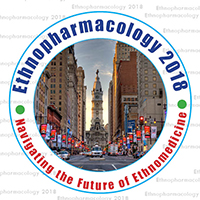
Rudolf Lucas
Augusta University, USA
Title: Solnatide: Tackling pulmonary permeability edema from all angles
Biography
Biography: Rudolf Lucas
Abstract
Efficient exchange of oxygen and carbon dioxide between the lung capillaries and the alveoli requires that the latter is kept dry. Vectorial Na+ transport through the apically expressed epithelial sodium channel (ENaC), and the basolaterally expressed Na+-K+-ATPase mediates Alveolar liquid Clearance (ALC) in type 1/2 alveolar epithelial cells. ENaC activity is defined by the product of its open probability time and its membrane surface expression. The alpha subunit of ENaC also associates with the acid-sensing ion channel to form the hybrid Non-Selective Cation (NSC) Channel, which also contributes to ALC. In conditions of ARDS and severe pneumonia, which are associated with intense pulmonary inflammation, ENaC function can become impaired. Moreover, pathogen-associated toxins, as well as pro-inflammatory cytokines can disrupt capillary endothelial barriers, causing fluid to leak from the capillaries into the alveolar space. The resulting Pulmonary Permeability Edema (PPE)
is a potentially lethal complication, for which no proven pharmacological treatment exists to date. The identification of novel
therapeutics for PPE is therefore of the utmost importance. Solnatide is a TNF-derived peptide that mimics the lectin-like domain of tumor necrosis factor, the latter of which is spatially distinct from the receptor binding sites1-4. Solnatide binds to the alpha subunit of ENaC and as such increases the open probability, as well as surface expression of the channel, even in the presence of bacterial toxins, such as Pneumolysin (PLY), the main virulence factor of Streptococcus pneumoniae. The peptide also prevents bacterial toxin-induced endothelial barrier dysfunction in lung microvascular endothelial cells, which express both ENaC and NSC channels and has potent anti-inflammatory actions. The therapeutic potential of Solnatide was recently evaluated in two phase clinical trials in patients with acute lung injury and lung transplantation. The results of the pre-clinical and clinical studies will be discussed in this contribution.

